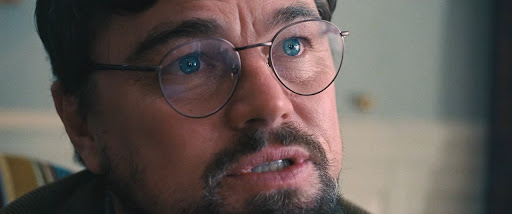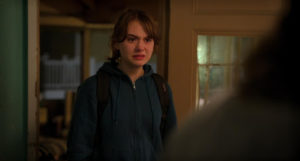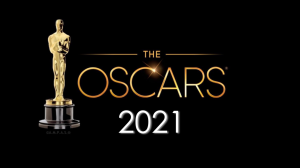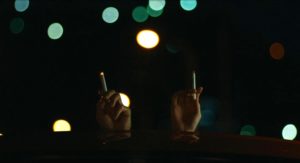Oscars Highlights: ‘Don’t Look Up’ (2021)

Image courtesy of Hyperobject Industries
Leonardo DiCaprio plays a permanently concerned and bewildered scientist in “Don’t Look Up”.
March 27, 2022
The Oscars are here! This incredibly popular but increasingly less respected industry award show has been making the good citizens of the US think “is this movie really worth watching” for the past 94 years now, and let me tell you: most of them aren’t. With that said, I’m going to try to run through some of the more interesting Best Picture nominees this year in order to give you a better idea of which movies you should watch and which ones you really shouldn’t.
“Don’t Look Up” is the deranged, excruciatingly long, and hyper-uncoordinated ramblings of one Adam McKay, a man who has made a career of making films most concerned with posturing towards issues of social importance that he has either very little stake in or knowledge of, or both. This is highlighted at its most egregious in “Don’t Look Up”, which has managed to score a nomination for Best Editing, despite having perhaps the worst film editing in a major motion picture since “Suicide Squad” (2016). Each shot in this film is as haphazardly placed as the last, with some scenes being so poorly assembled that it becomes hard to discern where characters are even sitting in relation to each other. This comes to a head the most in a scene just outside the Oval Office, a location I’ve personally been to, yet still couldn’t keep track of due to some truly abysmal eye lines.
While the film has one funny running gag about having to pay a man for free snacks, the rest of it is filled with exaggerations of modern day issues which totally lack cohesion. One moment there might be some painfully written satire of the climate crisis, while the next there’s a bit about teen cell phone usage that feels like just another poorly realized jab from an older generation completely lacking in understanding of Gen Z.
Ultimately, even though contemporary political unrest is ripe with opportunities for not just intelligent cinema, but great comedy, Adam McKay is simply not a filmmaker capable of the introspection and criticism necessary to make a film like “Don’t Look Up” great, or even competent. Instead, watch perhaps the greatest comedy ever made, “Dr. Strangelove, or: How I Learned to Stop Worrying and Love the Bomb” (1964).








